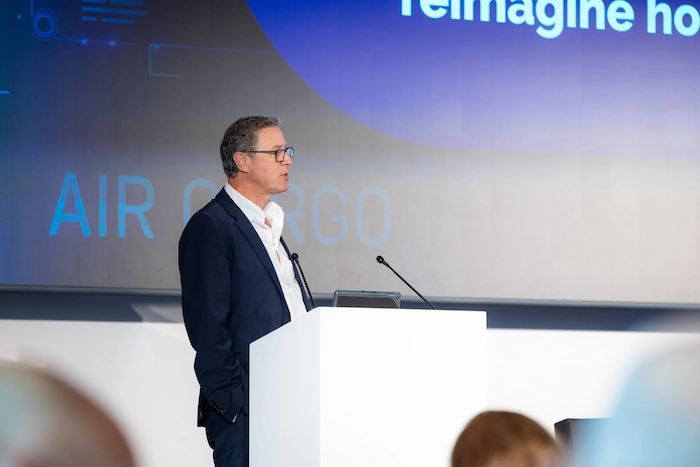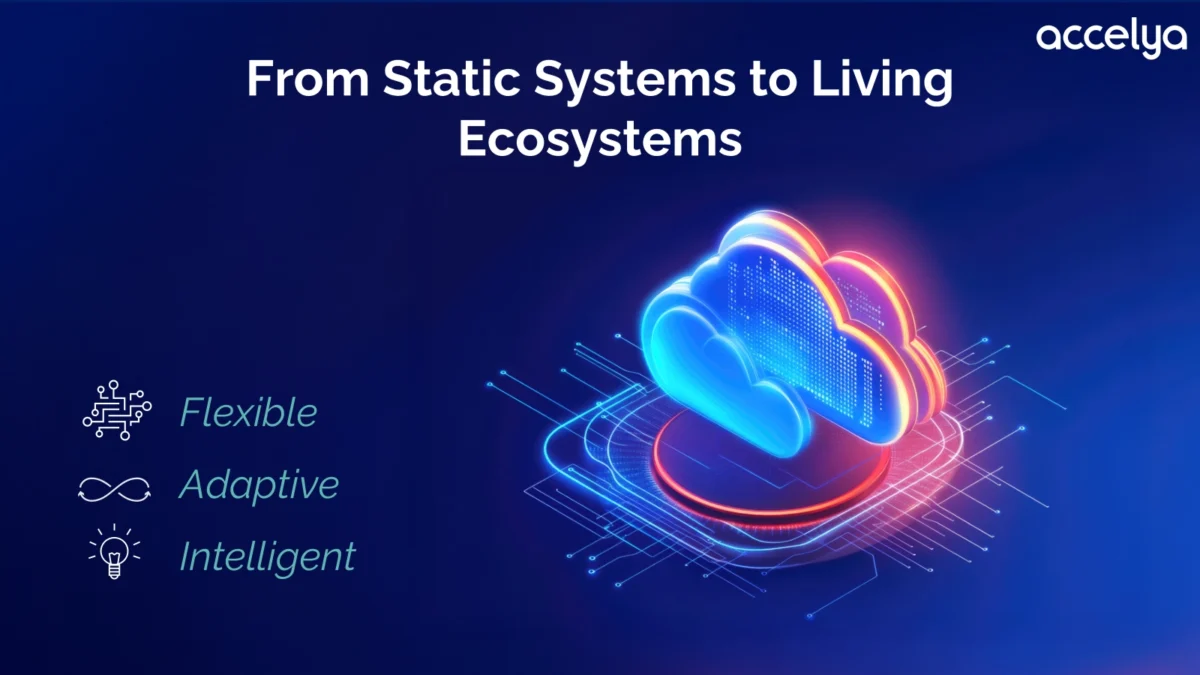At the TIACA Air Cargo Forum in Abu Dhabi, Accelya’s Matthew Woolmer and Prakash Sonpatki explored how artificial intelligence is reshaping the cargo industry – moving from promise to performance, and from pilots to measurable value.
AI is now embedded across the air transport ecosystem, from dynamic capacity forecasting to predictive disruption management. But as Matthew noted, “If there’s one word that captures where cargo is today, it’s momentum.” Digitalization has accelerated progress, yet many organizations still operate with blind spots, reacting to events instead of anticipating them.
AI helps shift that focus from hindsight to foresight. By connecting data across planning, operations, and revenue, airlines can predict demand, optimize capacity, and resolve issues before they escalate.
Beyond Technology: A Shift in Mindset
Technology alone isn’t enough. The real differentiator lies in people, process, and mindset. As Matthew put it, “The difference between an airline that moves fast and one that doesn’t isn’t size – it’s how ready they are to reimagine how they work.”

AI requires leaders who are willing to experiment, work alongside intelligent systems, and build trust in new ways of making decisions. We may soon be “the last generation of managers whose teams consist entirely of people,” Matthew noted. The next phase is about preparing people and organizations to lead both humans and AI with confidence.
From Generative to Agentic AI
Most of us have already used generative AI. The next evolution, Agentic AI, goes further by connecting and executing full workflows. In cargo, that might mean:
- Dynamically optimizing capacity and yield in real time
- Predicting disruption and suggesting adjustments
- Managing exceptions and customer updates automatically
Across aviation, pricing agents, service-recovery agents, and operational decision agents are early examples of intelligence that acts, not just advises.

Prakash also highlighted relevant cargo use cases emerging today: booking assistants that streamline digital bookings, duty-manager assistants that orchestrate tasks, and new opportunities as cargo becomes increasingly “retail-like” and more closely connected to passenger operations.
Data: The Fuel of AI
As The Economist put it, “The world’s most valuable asset is no longer oil but data.” Over the past decade, global data volumes have grown at a 26% CAGR – a scale that makes modern AI possible.
The relationship between data and AI is reciprocal. AI can identify tumours in MRI scans, but only after being trained on millions of them. Cargo is no different: AI needs robust, contextual data to learn and act with confidence.
Prakash framed it through the DIKW model:
- Data becomes information with context;
- Information becomes knowledge with meaning;
- Knowledge becomes wisdom with insight;
- Wisdom is what makes data actionable.
AI is the accelerator that connects every step of that chain.

Crucially, this doesn’t require perfection. “If we wait for perfect data, we’ll never move forward,” Prakash said. What matters is data that is connected, trusted, and improving.
Governance, Openness and Responsible AI
AI only creates value when it is trustworthy. More than 40 countries have adopted OECD principles for responsible AI, and there is broad agreement that “soft law” frameworks – guidelines, expectations and best practices – are the best way to govern a fast-moving technology.
Openness is another essential foundation. Systems must talk to each other through APIs and shared standards. As Prakash noted, this aligns with Accelya’s own principle of being Open by Nature.
He summed it up as four foundations for AI success:
- Data – connected, contextual, and accessible
- Openness – interoperable systems and open standards
- Governance – explainable and accountable AI
- People – organizations ready to use AI as a collaborator, with humans in the loop
“The biggest barriers to AI adoption aren’t technical,” he said. “They’re cultural.”
From Static Systems to Living Ecosystems
Airlines are already seeing real impact: AI-driven pricing, optimized load planning, predictive maintenance, automated exception handling, and reduced revenue leakage.
But AI can’t simply be bolted onto rigid systems. The future belongs to platforms that are flexible and adaptive – living ecosystems that sense, learn, and improve continuously.

Accelya is embedding AI across the cargo value chain, connecting planning, operations, and revenue through human-in-the-loop orchestration. The aim isn’t to replace expertise, but to amplify it.
The Takeaway: Progress Over Perfection
Matthew and Prakash closed with four principles for airlines shaping their AI strategy:
- AI is moving from promise to performance – the focus now is on scale and real-world value.
- Progress over perfection – connected, improving data beats perfect data.
- Change starts with people – success depends on trust, curiosity, and collaboration.
- Intelligence means adaptability – future systems must evolve with the business.
As Prakash summed it up: “Data is the fuel and AI is the engine. Airlines own the data; companies like us understand the AI. Together we can turn the promise into lasting performance.”
And as Matthew added, “Transformation isn’t a project – it’s a mindset. Cargo has always been about moving goods efficiently. Now it’s about making those movements smarter.”






